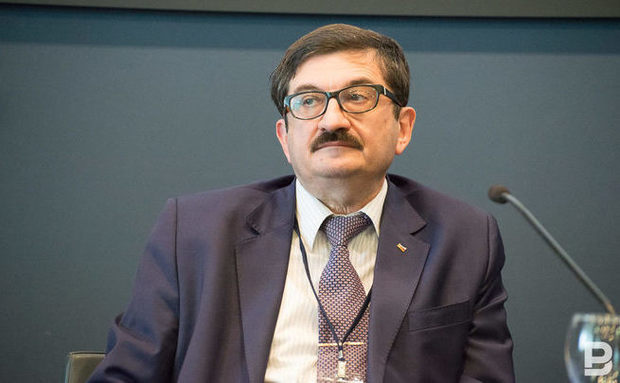''Black creditors'' have no overdue payment because their health is at risk''
Big problems of small loans at a summit of microfinancing organisations in the capital
Money before salary at 1,000% a year – the business model of microfinance organisations with an enviable regularity becomes a topic for discussions. Paternalistic citizens and institutes try to limit the interest rate of small loans confirming their words with the next piece on predatory lending and mess of collectors on federal TV channels. Very microfinance organisations insist that loans are granted to adult eligible citizens who can and must be responsible for the money they took from the organisation. Realnoe Vremya's correspondent visited the biggest event in the sector — MFO Russia Summit 2017 – and heard out managers who were discontent with the state and public attention.
Expensive loans for the poor
The situation with overdue payment on microloans has noticeably improved in 2017, Deputy Marketing Director of the National Bureau of Loan Stories Vladimir Shikin stated. In July, the share of overdue microloans was 32%, which is not a bad indicator because microfinance organisations almost evaluate borrowers.
In addition, microloans are more popular in regions with low income, Shikin noted. The National Bureau of Loan Stories estimates that 1,000 economically active population account for 40 microloans on average in Russia. However, they are distributed unevenly in regions – almost twice less in Moscow and almost twice more in Altai.
Another expert, managing expert of Businessdrom Arseny Poyarkov thinks that this year the MFO market will grow by at least 10%. The volume of investments is also to grow by 10-15%. Poyarkov forecasts that a natural person's average deposit will be 3,5 million rubles and juridical's — 23 million.
Democracy or paternalism?
The business model of a microfinance organisation is very simple: money is granted comparably easily, the borrower's evaluation is by far simpler than in a big bank. The very MFO tries to exact the unreturned money (about 1/3 of all the microloans). In case of no success, it sells the debt to collectors who undertake the job on asking the money from the debtor. In addition, the rate is not published openly anywhere. But in an interview to Realnoe Vremya, Arseny Poyarkov estimated at less than 5 points. In other words, the MFO gets about 50,000 from every million of a big overdue payment.
What is more, the work of collectors as well as very microfinance organisations is accompanied by numerous scandals in the media. First of all, because of high interest rates of microloans that is much more than bank conditions. Scandals, in turn, made regulatory bodies restrict MFO's appetite. From 1 January 2017, interest rates in consumer microloan agreement won't exceed the threefold sum of the debt, the Central Bank decided.
MFO rushed to take this decision to court and state that at the moment the market became ''less interesting'' and citizens need to care about themselves on their own or at least read the agreement and weigh risks.
''Administrative limits appear because our citizens are insensible, they go to kindergarten,'' Chairman of the board of the Union Self-Regulatory Organisation Pavel Sigal is sure. ''On the one hand, from a perspective of democracy, it is a breach of democratic rules if you don't give a person a possibility to borrow at 1,000% while he is ready. On the other hand, the Chinese said… ''the government takes care of everyone.''

The experts think that restrictions provoke growth of black and grey markets. In addition, the population's juridical intelligence doesn't play a role while choosing a bank:
''Those who take out from black creditors are very prepared. They just understand the risk's price is different there. There is no overdue payment there because it is not a reputational risk, health is at risk,'' Andrey Lebedev, president of Union Self-Regulatory Organisation Small and Medium Business Development Institutes Microfinancing Alliance, explained.
Meanwhile, the reduction of the number of legal organisations is confirmed by digits: as from the beginning of the year, the state roster had 2,500 notes. Their number reduced to 2,100 by July.
Bank for usurer
To sum up the strategic session, the experts announced MFO's own problem – difficulties while working with banks. Organisations often find it difficult to open an account in a bank – the MFO is denied without a clear reason. This situation especially arises if the MFO was excluded from the state roster and its owner tries to open a new juridical person.
Andrey Lebedev offered a solution to the problem: ''What if we create our own bank with a limited licence? Like a benevolent fund. Let's open our own small bank and we will just know that we have a bank whose licence won't be revoked tomorrow.''
The idea was not unanimously approved or denied. The discussions of the initiative moved to the summit's backstage.